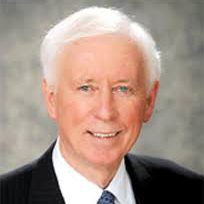A Global Perspective on Medicine’s Future
Today I am just a short distance from my home in Winter Park, Florida to present grand rounds at the University of Florida Medical School in Gainesville. I will talk to the medical students, residents and faculty on the subject “A Global Perspective on Medicine’s Future”. I say short distance because of the comparison of a two-hour drive by car, with the usual 24 to 30 hours of travel for most of my assignments, which are outside the United States (US).
My remarks will begin with a description of the different types of health care systems around the world described so well by T.R. Reid in his book, “The Healing of America” in which he contrasts health care in developed countries with that in the US.
The four major health care systems according to Reid are:
- The Bismarck Model – that relies on private insurance and private entities to provide health care
- The Beveridge Model – the prototypical single payer government run system
- The National Health Insurance Model – based on government insurance with providers working mostly as private entities
- The Out of Pocket Model – found mostly in poor countries where there is no organized public or private health insurance system
The remainder of my talk will be devoted to what I will call the “five realities” affecting the future of medicine and by extension the medical profession. These are:
- The moral imperative of ethics in medicine – Physicians are most credible when we speak from a platform based on principle and ethics. That means we must speak out on broad public health issues.
- The promise of science – The tests, medications, vaccines and medical devices that flow in an ever-building torrent from the laboratories and clinics of inquisitive and imaginative scientists will continue instill awe and amazement.
- The challenge of noncommunicable disease/social determinants of health – These are now the leading cause of death and disability worldwide in developed and developing countries. They will challenge our ingenuity to mount the society-wide efforts needed to address with the causes, life style behaviors.
- The threat of climate change – Global warming and the accompanying climate change are having significant health effects. Physicians have an important role to play in helping patients adapt to the effects of climate change and in encouraging governments to adopt policies to mitigate climate change
- The hope of health system reform – The Affordable Care Act passed into law in the US (March 23, 2010) represents a significant first step at health care system reform with a goal of expanding coverage, improving quality and safety and making health care more affordable.
My concluding message at grand rounds will be that these times call on us all as a profession to work together to bring clarity to the issues that confront us, to understand them and to make them work for patients and physicians.
As physicians, we are joined by our common contract with humanity.
We reach out to the sick, the disabled and the chronically ill.
Suffering knows no language, and easing pain, finding treatments, developing cures – know no borders.
Working together we can create the future of medicine.
Together, we can open new doors, share new insights, find new cures, prevent disease and help our patients the world over to live healthier, happier, longer, more productive lives.
I look forward to that.
WMA President Cecil. B. Wilson, MD travels around the world talking about the WMA’s work representing the millions of physicians worldwide. Acting on behalf of patients and physicians, the WMA endeavors to achieve the highest possible standards of medical care, ethics, education and health related human rights for all people. This blog will chronicle these travels and important issues.

